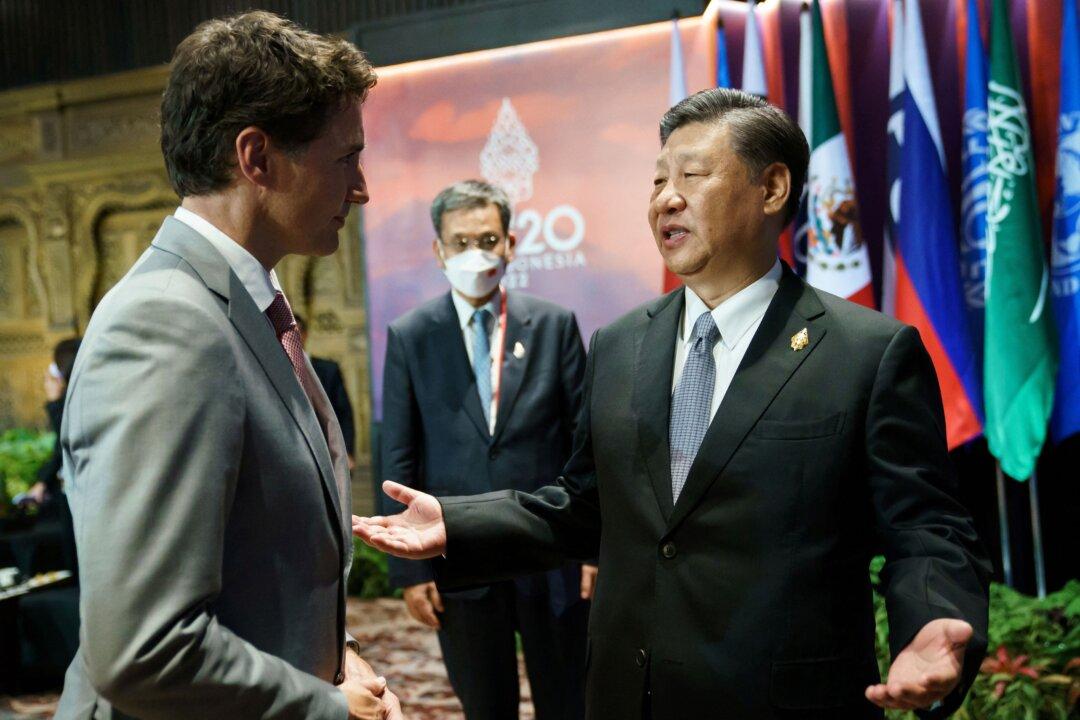There is a lot to unpack from Chinese leader Xi Jinping’s brief confrontation with Prime Minister Justin Trudeau on the sidelines of the G20 summit on Nov. 16. The incident was caught on camera, with Xi telling Trudeau that he shouldn’t have “leaked” to the media details of their conversation from the day before.
“In exchanges like this, body language is extremely important,” Conservative Sen. Leo Housakos wrote on Twitter.





